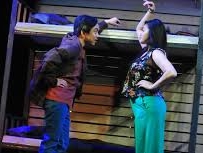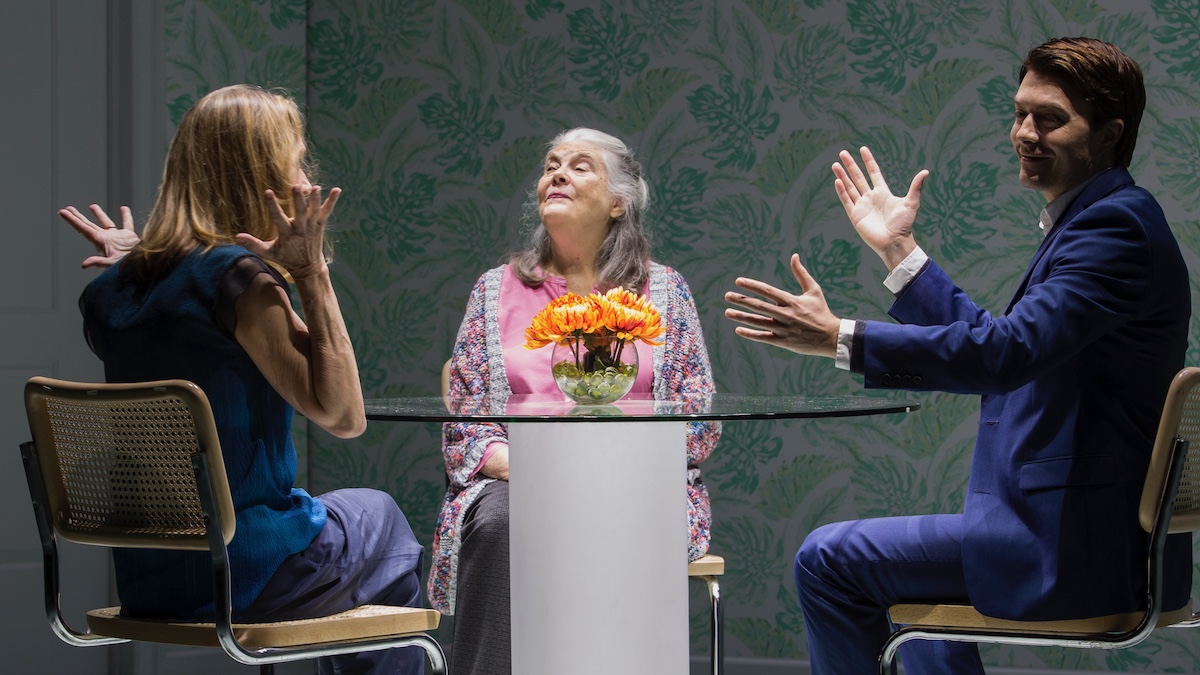
QUANG. Why you so serious?
PLAYWRIGHT. Because, Dad, I’m trying to do something important here.
Something about you, about Mom, about Vietnam.
In the forty-plus years since the fall of Sai Gon, there’s been plenty of theatre, film, literature, and political analyses on what occurred in Vietnam. The bulk of it has focused on America’s involvement in Vietnam and the collective national shame and pain that resulted from it. Pretty serious stuff.
And as Qui Nguyen has recounted in interviews, he initially set out to write his family’s story in the same somber style as much of the Vietnam War stories that preceded it. And his folks rebuked him. That doesn’t sound like you. That doesn’t sound like us. summed up his family’s response.
And so he went back and wrote what he knew: in-your-face audacious, bombastic fun. Hip-hop. Ninja fights. His parents recast as foul-mouthed, sexed up, bad-ass superheroes. Because that’s his voice and that’s who they were.
I could relate. As a Vietnamese refugee who was born in a tiny village northwest of Sai Gon near the Cambodian border, I was brought to America along with my older sister by parents who wanted to see their children have a fighting chance to choose their path in life. We were refugees, yes. My parents and my sister survived the war and I was born afterward and survived our escape.
I grew up in a household where the residue of the war was the invisible wall paper in our home. Where I was told to “Go home, Gook!” on the playground by children who had no idea what they were saying. But I wasn’t raised by a soldier and his wife. I was raised by two really funny and kind people who worked hard, kept a roof over us, told me to keep up my studies, and supported my choice to pursue a life in the arts. I was raised by a rich kid who was born with a silver spoon in his mouth. I was raised by a poor little orphan girl. They listened to the Beatles and rode motorcycles. They got into street fights with the other juvies. They went to the beach and played around on resorts that my architect grandfather designed. They fell in love in the middle of a war. They lost everything and started over in a new adopted home. They weren’t textbook figures or nameless faces in a harrowing photo attached to an article about body counts. They were people you’d recognize in yourselves, regardless of where you came from if race and broken English weren’t barriers.
And the same is true of Vietgone’s Quang and Tong, Nguyen’s own parents. Progress sometimes feels like it lurches forward at a glacial pace but in this era where #representationmatters, Nguyen’s work is introducing Vietnamese characters to American audiences who look, sound, feel, smoke, and swear just like them (whoever they might be). He’s allowing them to meet us in a real and visceral way for the very first time.
As a Vietnamese American actor, I’ve been fortunate to have been afforded opportunities by theatres who strove to be color-conscious in their casting but the roles as written specifically for Asian American characters have continued to be limited in number and stereotypically exotic or effeminate. Most “normative” roles default to Caucasian or stories are appropriated and subjected to #whitewashing.
Growing up, it was uncommon to see anyone like myself or my family represented in a way that felt like us. It was rare to encounter the subject of Vietnam outside of the context of the Vietnam War or told from anything other than the American perspective, which is why it’s so important that this generation of Vietnamese American writers tell our stories and the stories of our parents. It’s important for all generative artists of underrepresented populations to tell their stories and it’s vital that theatre companies support these works. It’s fantastic that Vietgone is being produced by theatres all over the country this season because voices like ours have been waiting a long time to have a conversation with you. I’m grateful that theatres like the Unicorn champion these conversations because my family and Nguyen’s family are more than the war that happened in Vietnam and we’d love for you to get to know us.
QUANG. My life is more than the eight years I fight.”
And the Vietnamese diaspora spread across the globe can nod in recognition.
To purchase a copy of Vietgone, click here, and to learn more about licensing a production, click here.

A Children’s Theatre Classic: An Interview with Snow White And The Seven Dwarfs Composer Michael Valenti

Inspired by True Events: A Conversation with Playwright Ryan Spahn

